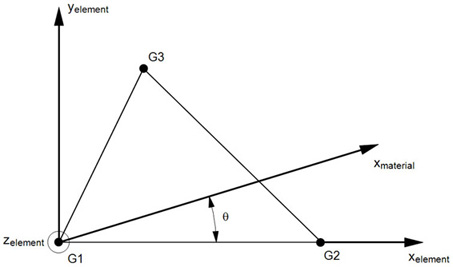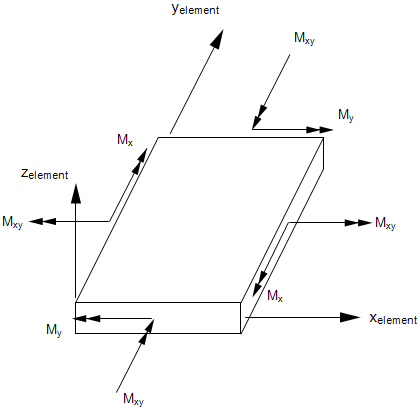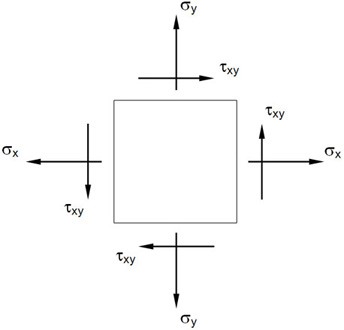Triangular Element Connection
Description: Defines a triangular, isoparametric membrane-bending or plane strain plate element.
Format:

Example:

| Field | Definition | Type | Default |
|---|---|---|---|
| EID | Element identification number. | Integer > 0 | Required |
| PID | Identification number of a PSHELL or PCOMP property entry. | Integer > 0 | Required |
| Gi | Grid point identification numbers of connection points. | Integer > 0, all unique | Required |
| THETA | Material property orientation angle in degrees. | Real | See Remark 4 |
| MCID | Material coordinate system identification number. | Integer ≥ 0 | See Remark 4 |
| ZOFFS | Offset from the surface of grid points to the element reference plane (see Remark 3). | Real | 0.0 |
| Ti | Membrane thickness of element at G1, G2, and G3. | Real ≥ 0.0 | See Remark 5 |
Remarks:
- Element identification numbers must be unique with respect to all other element identification numbers.
- Stresses are output in the surface coordinate system. (See the SURFACE command in Section 3, Case Control.)
- Elements may be offset from the grid point surface by means of ZOFFS. Other data such as stress fiber locations are given relative to the reference plane. Positive offset implies that the element reference plane lies above the grid points in the sketch. Use of a non-zero value for ZOFFS will produce membrane-bending coupling. Users must specify values for MID1, MID2, and MID3 in the PSHELL entry for the element if a non-zero value of ZOFFS is used. ZOFFS values must only be used when membrane and bending action is specified for the element. Absence of either of the actions does not allow development of membrane-bending coupling.
- If THETA/MCID is blank, field 5 of the PSHELL continuation entry will be used. If this field is also blank, then THETA = 0.0 is assumed when a non-isotropic material is referenced.
- If Ti in fields 4 through 6 of the continuation entry are blank, field 4 of the PSHELL entry will be used. This is the preferred way of specifying element thickness if the thickness does not vary over the element.

Figure 1. MCID Coordinate System Definition

Figure 2. CTRIA3 Element Geometry and Coordinate System


Figure 3. Forces and Moments in CTRIA3 Elements

Figure 4. Stresses in CTRIA3 Elements